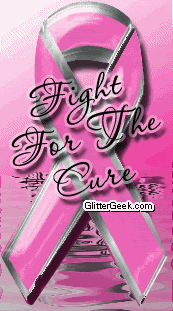
The researchers examined the benefits and negative effects of seven breast cancer screening programs on 500,000 women in the United States, Canada, Scotland and Sweden. The study's authors found that for every 2,000 women who received mammograms over a 10-year period, only one would have her life prolonged, but 10 would endure unnecessary and potentially harmful treatments.
The researchers found that although overall screening lowered breast cancer mortality by roughly 15 percent, it also increased the number of mastectomies by 20 percent and boosted the likelihood of radiation treatment.
However, the UK's National Health Service (NHS) breast screening program -- which provides free mammograms for women over the age of 50 every three years -- cited different statistics in defending its program. An NHS statement said the Department of Health's advisory committee on breast cancer screening had conducted its own evaluation of the program, and found that screening prolonged the lives of five women out of every 2,000 over a 10-year period.
Julietta Patnick, director of the NHS screening programs, said in a statement that screening actually led to a reduced number of mastectomies, and that 1,400 lives were saved every year by the program. Patnick also said that the benefits of mammograms "far outweigh the risks."
However, opponents of breast cancer screening -- which can produce false positives and subject women to harmful, unnecessary treatments -- argue that women are not being informed of the possible negative effects of screening.
Dr. Peter Gotzsche, director of the Nordic Cochrane Centre, said a study by researchers at the center examined letters and leaflets -- including ones from the NHS inviting women to undergo mammograms -- were biased toward possible benefits, and made no mention of the dangers of the procedure.
Gotzsche said Patnick's statement about screening reducing the number of mastectomies was "misleading," and said he was "amazed" at how emotional people were when informed of the possible negative effects of breast cancer screening.
"Some people get offended if you start questioning the balance between benefits and harms," he said. "They just don't want it discussed. This is an awkward position. It is wrong to not inform women about the harms."
Longtime mammogram critic Professor Michael Baum said politics were to blame for breast cancer screening not being held to the same scrutiny as breast cancer drugs. Baum also said the breast cancer treatment industry would "lose a hell of a lot of face if [the government] began questioning the value of screening."
Consumer advocate Mike Adams called breast cancer screening "a recruiting tool to ensnare new revenue-generating patients," and criticized the "fear-based" marketing used to attract women to screenings.
"The evidence is now quite clear that breast cancer screening is harming 10 times as many women as it helps," Adams said. "It's time to start questioning the corporatization of the breast cancer industry, and whether we should be shifting our priorities to breast cancer prevention rather than treatment with harmful chemicals."
Thursday, October 19, 2006 by: Jessica Fraser
Sumber : http://www.newstarget.com/020829.html
 Peperangan melawan penyakit ini, diperlukan persenjataan yang lengkap, meliputi keseluruhan isi blog yg terdiri dari :
Peperangan melawan penyakit ini, diperlukan persenjataan yang lengkap, meliputi keseluruhan isi blog yg terdiri dari : 









